Question And Answer
Publications
Articles, publications, books, tools and multimedia features from the U.S. Institute of Peace provide the latest news, analysis, research findings, practitioner guides and reports, all related to the conflict zones and issues that are at the center of the Institute’s work to prevent and reduce violent conflict.
Arab Hip Hop Artists Use Music to Collaborate on Peace
Rhymes and rhythms can share ideas across cultures, and that is just what the Arab Hip Hop artists at the event, “Rhymes of Peace: Arab Hip Hop Artists on Youth and Media,” emphasized through their performances and discussions at the United States Institute of Peace. The Narcicyst, along with hip hop artists Omar Offendum and Mana, participated in the forum.
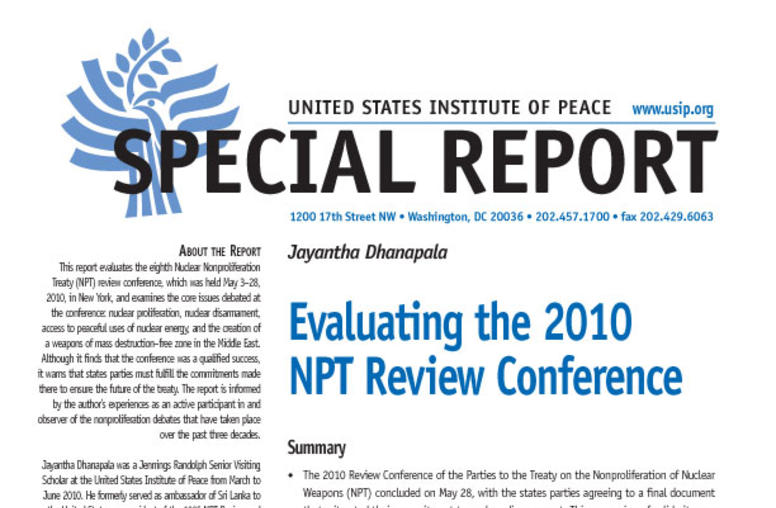
Evaluating the 2010 NPT Review Conference
This report evaluates the eighth Nuclear Nonproliferation Treaty (NPT) review conference, which was held May 3–28, 2010, in New York, and examines the core issues debated at the conference: nuclear proliferation, nuclear disarmament, access to peaceful uses of nuclear energy, and the creation of a weapons of mass destruction–free zone in the Middle East.
On the Issues: Lebanon
Mona Yacoubian, director of the Lebanon Working Group at the U.S. Institute of Peace and special adviser to the Institute’s Center for Conflict Analysis and Prevention, discusses recent developments in Lebanon, and their broader impact on the region as well as prospects for peace in the Middle East.
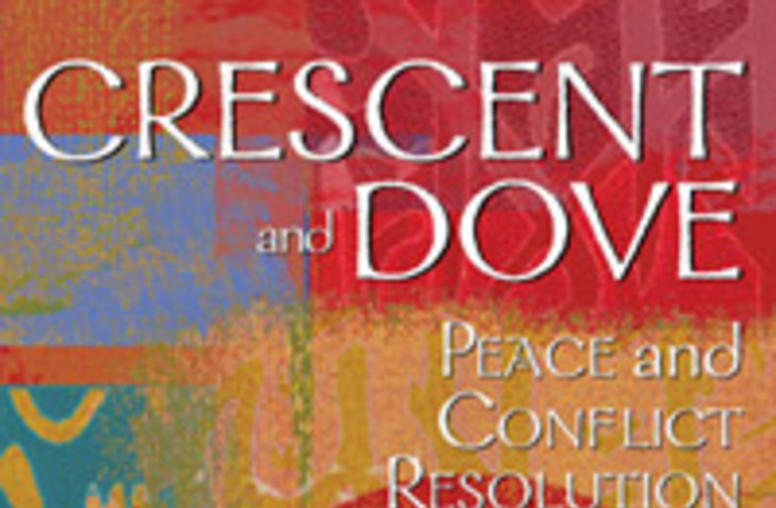
Crescent and Dove
Crescent and Dove looks at the relationship between contemporary Islam and peacemaking by tackling the diverse interpretations, concepts, and problems in the field of Islamic peacemaking. It addresses both theory and practice by delving into the intellectual heritage of Islam to discuss historical examples of addressing conflict in Islam and exploring the practical challenges of contemporary peacemaking in Arab countries, Turkey, Iran, Pakistan, and Indonesia.
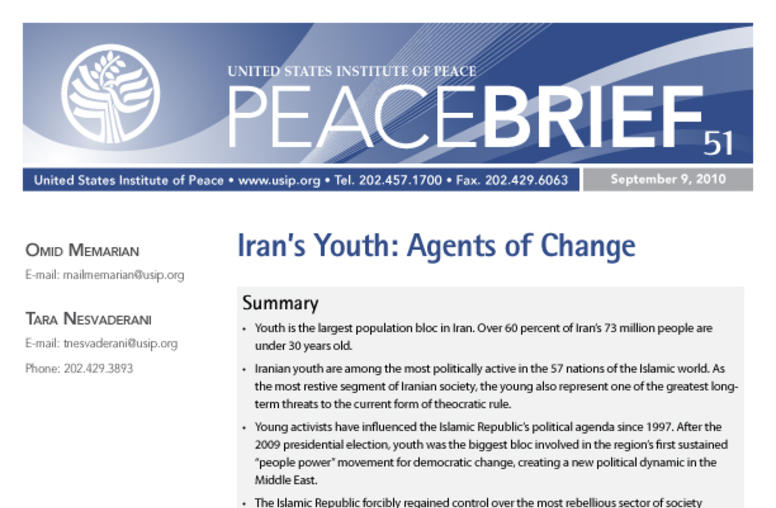
Iran’s Youth: Agents of Change
The impact of Iran’s youth on the political, economic and social agenda of the country over the next 25 years is important for U.S. policymakers to consider when facing complex decisions in balancing Iran’s nuclear program and its internal political turmoil.
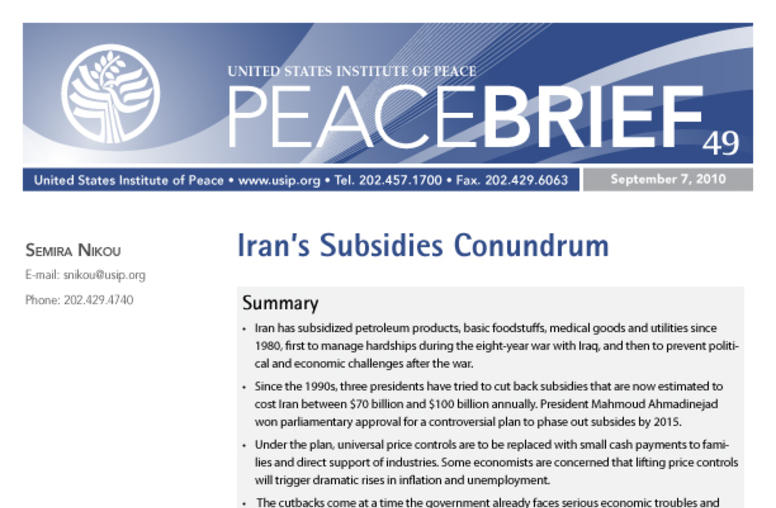
Iran's Subsidies Conundrum
This Peace Brief was written in advance of Iran’s subsidy reform. Currently scheduled for the end of September, the reform is one of the most debated and anticipated economic overhauls in the country. It has the potential to incur severe consequences in a country already burdened by sanctions and fraught with inflation and unemployment. At the same time, reform can potentially discourage waste, reduce inefficiencies in industries, and be a catalyst for economic liberalization.
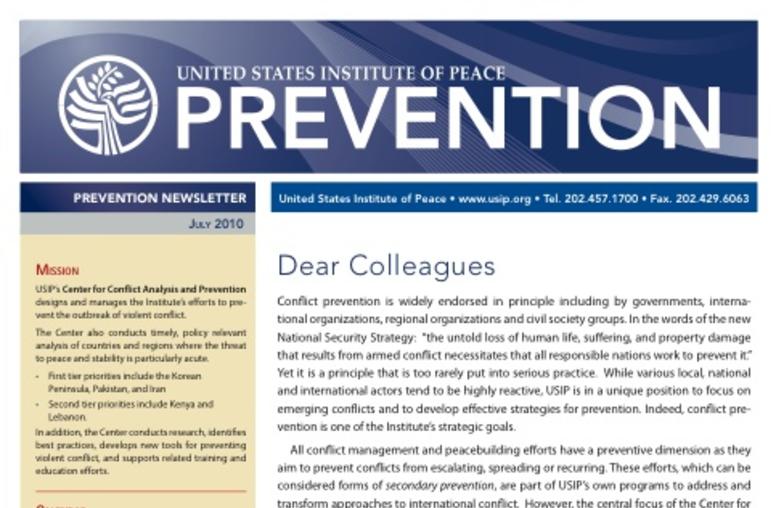
USIP Prevention Newsletter - September 2010
The bimonthly Prevention Newsletter provides highlights of CAP's conceptual work, its region specific work aimed at helping to prevent conflicts in Africa, the Middle East, South and Northeast Asia, and the special projects on genocide prevention and nonproliferation. It also provides Over the Horizon thinking on trends in different regions, as well as CAP events, working groups and publications.
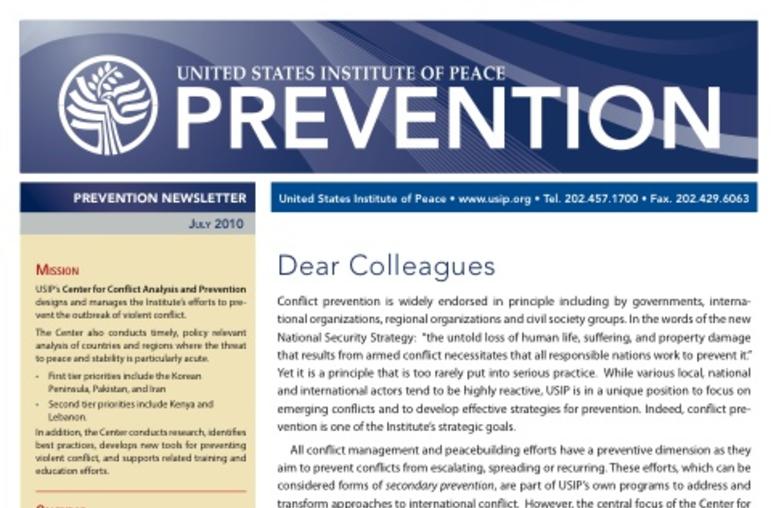
USIP Prevention Newsletter - July 2010
The bimonthly Prevention Newsletter provides highlights of CAP's conceptual work, its region specific work aimed at helping to prevent conflicts in Africa, the Middle East, South and Northeast Asia, and the special projects on genocide prevention and non-proliferation. It also provides Over the Horizon thinking on trends in different regions, as well as CAP events, working groups and publications.
On the Issues: Iran Sanctions
The United Nations Security Council on June 9 voted to impose a fourth round of sanctions on Iran, targeting conventional arms and the finances of 40 Iranian companies. The U.N. Security Council decision was not unanimous as two of the 15 nations on the council -- Brazil and Turkey – voted against the measure. Lebanon abstained. In an update to a May 20 “On the Issues,” USIP experts Robin Wright, Dan Brumberg and George Lopez provide different views on the U.N. vote and whether these sanction...
Nuclear Summit Wraps, Creating Momentum to Bolster Security
At the Nuclear Security Summit on April 12 and 13, leaders from around the world pledged to take their own steps to secure nuclear material used in bombs, civilian nuclear reactors and power plants, and to work together to enhance overall security.